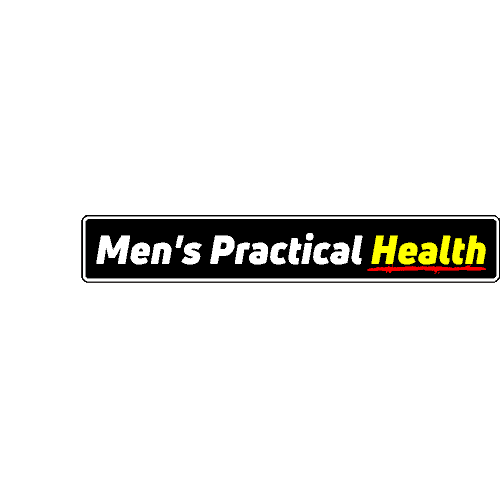After a long day at work, it’s not uncommon to feel like the couch is calling your name louder than the gym ever could. You set out with good intentions: “I’ll hit the gym right after work!”—but by 6 p.m., all you want is food, TV, and bed. Sound familiar? Don’t worry, we’ve all been there.
But here’s the thing: just because you’re feeling tired doesn’t mean exercise is off the table.
So, I intend to help you crack the code to Boost your energy levels, master your workout routine, and keep fitness a sustainable part of your life. Even when exhaustion hits hard.
Why Do You Feel Too Tired to Exercise After Work?
It’s not just about laziness (promise!). That drained, sluggish feeling is often a sign that your energy levels are low. This may be due to stress, poor sleep, inconsistent nutrition …
Or simply down to a long, hard day of work.
The 9-to-5 grind can leave you mentally wiped, and our bodies are hardwired to conserve energy at the end of a long day.
Also, if you’re dealing with sleep deprivation, your body isn’t getting the reset it needs. Sleep affects everything, from muscle recovery to mood and alertness. Without quality sleep, it’s no wonder you feel drained before a gym session.
Yet, fatigue doesn’t always mean you should skip the workout. It might actually be the energy boost you need.
Different Types of Tiredness (And What to Do About It)
Not all tiredness is created equal. The type of exhaustion you’re dealing with dictates whether to push through or rest.
Physical Tiredness
When you’ve had an active day (lots of walking or hard labour work), your muscles might feel done. If you feel like this one to two days a week, then schedule a low-intensity activity on these days – Such as walking.
If you’re set to hit the gym for a hard workout, one thing that can help is creatine. A study showed that taking creatine can reduce the affects of fatigue on muscles, during high-intensity workouts.
Mental Fatigue
Your brain feels fried from emails, meetings, and decision-making. The solution? Exercise can actually help.
A workout in the gym or going out for a run can reduce stress and improve mental wellness. You might not want to bench press 70 Kg, but a good workout workout could clear your head and boost your mood.
Chronic Fatigue
If you constantly feel drained, consult with a doctor. But even then, light physical activity, like walking, will help improve your energy levels. Start slow, listen to your body, and increase intensity gradually.
Should You Workout If You’re Tired from Work?

Yes—and no. Haha! I realise that’s not an answer, so let me explain.
Skipping the odd workout won’t derail your long-term progress. But be mindful: rest isn’t the same as inactivity.
On more than one occasion, I have felt tired and didn’t feel I had the energy level to train. However, even though I knew I could not lift as much as I normally would, I still worked out, but at a lower intensity.
You don’t always have to push yourself to the max. Simply doing some form of exercise, even if it’s lifting a reduced weight or running at a slower speed, is better than doing nothing.
How to Stop Feeling Too Tired to Exercise After Work
Breaking the cycle of exhaustion after work takes a mix of strategy, lifestyle tweaks, and a bit of mind over matter. Here’s how to power through that fatigue and rewire your routine so the gym becomes less of a chore and more of a habit:
Set a Pre-Work Routine (and Stick to It!)
Having a ritual to bridge work and exercise can help you get into the workout mindset. For example, change into your gym clothes right after logging off or put on an energising playlist during your commute home. These simple actions cue your brain that it’s time to transition from work mode to workout mode.
Plan Ahead with Bite-Sized Goals
If you’re too tired for an hour-long workout, aim for 20-30 minutes. Promise yourself you’ll just do the warm-up—often, once you get started, you’ll find the energy to keep going. Breaking your goals into bite-sized chunks can reduce the mental barrier of an “all-or-nothing” workout. Making it easier to show up consistently.
Eat Energy-Boosting Snacks

To avoid the dreaded after-work slump, have a snack about one and a half hours before quitting time.
“Aim for healthy, easily digestible carbohydrates such as whole grains, low-fat or fat-free yoghurt, fruit, and vegetables. Include a small amount of protein (too much will slow down digestion) and avoid fats — they will make you feel sluggish.”
Grace T. DeSimone, B.A.
My go-to food before a workout is a banana with a small protein shake (mixed with water), and that sets me up. When I can, I do sneak a small coffee for more energy.
Obviously, how much food you need to eat depends on the duration and type of exercise you’ll do.
Leverage the Buddy System

Having a buddy to train with or an accountability partner can be helpful. Although, I do not recommend using this as a long-term option (I will cover the reasons why in a future blog post).
But, this can be useful in the beginning. You can both help and motivate each other to keep on track.
Whether it’s a friend, family member, or a fitness app community, having someone to share your goals with can keep you inspired and committed. Knowing someone’s counting on you to show up makes it harder to bail.
Reframe Exercise as Self-Care
If you view exercise as just another task that’s not needed, it’ll always feel hard. Instead, see it as a way to unwind and prioritise you.
Workouts boost mental wellness, reduce stress, and give you that endorphin lift. The more you associate exercise with well-being, the less likely you are to feel too tired to get it done.
Practice Proper Sleep Hygiene
Consistent sleep patterns and a good number of hours sleep are the best prevention against chronic fatigue. Aim for a steady bedtime, limit screen time an hour before bed, and create a relaxed, dark sleep environment. Good sleep isn’t just a luxury; it’s essential for maintaining the energy levels needed to stay active after work.
Fuelling Your Workouts with the Right Nutrition
We’ve mentioned post-workout snacks, but your energy levels start with what you eat throughout the day. Adequate nutrition—think lean proteins, complex carbs, and healthy fats—keeps you fueled for regular exercise sessions.
Skipping meals or snacking on junk drains your energy and makes workouts feel harder. Hydration is equally essential, so keep water handy throughout the day.
Workout in the morning – before work
If you’re a morning person, an early morning workout might be your golden ticket. This frees up your evenings for leisure or sleep. Plus, morning exercise can sharpen your focus, giving you mental clarity for the workday ahead.
As a bonus, the feeling of not having to exercise after a working day is bliss.
Not an early riser? No sweat. Some of us are naturally wired to perform better in the afternoon or evening. The key is personal preference. Find what works best for you and stick with it.
But if you notice you’re consistently too exhausted to exercise after work, experimenting with exercising in the morning might be worth a shot.
Integrating these habits gradually will help you become disciplined and help you get around low energy levels that stop you from exercising.
Quick Summary To Turn Fitness into a Habit, Not a Hassle
Feeling too exhausted to exercise after work doesn’t have to be the norm. With a few changes—whether it’s changing your workout time, prioritising quality sleep, or eating better—you’ll find it easier to stay active.
So, the next time you’re debating whether to hit the gym or the sofa, ask yourself: “What does my body need today?” And remember…
Your body is the most valuable thing you’ll ever possess in your lifetime!


